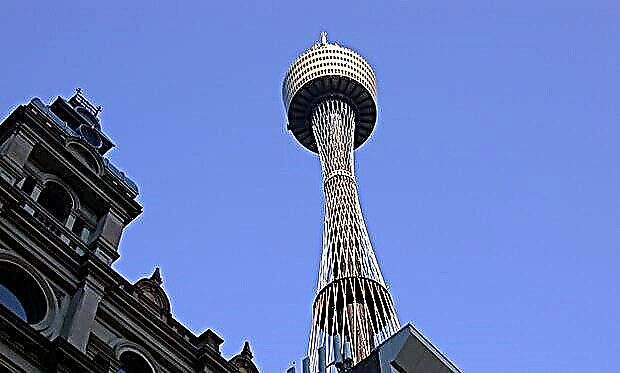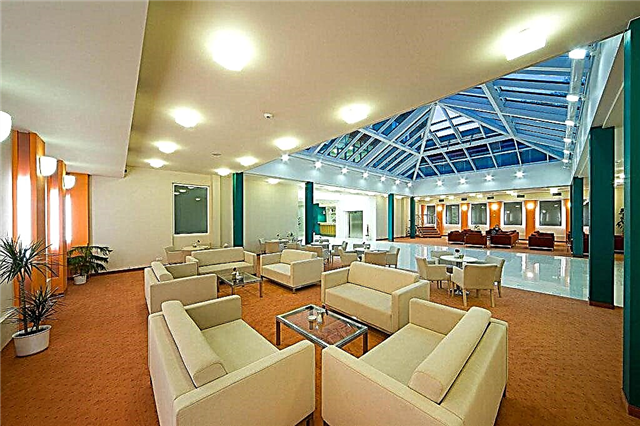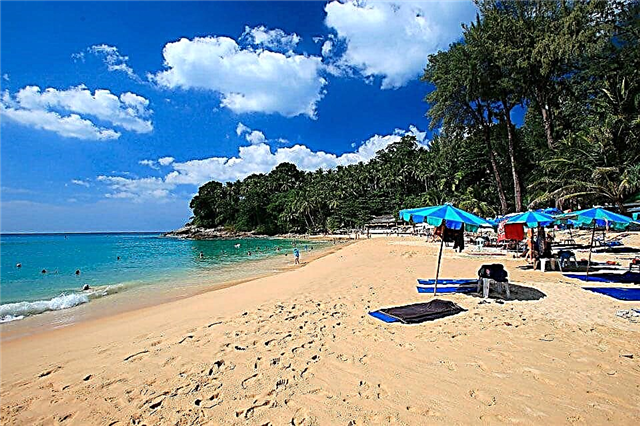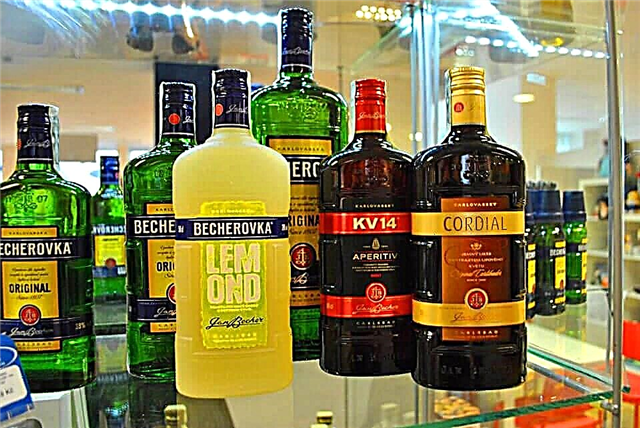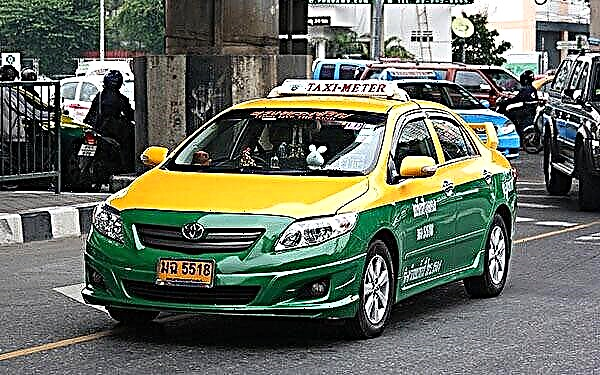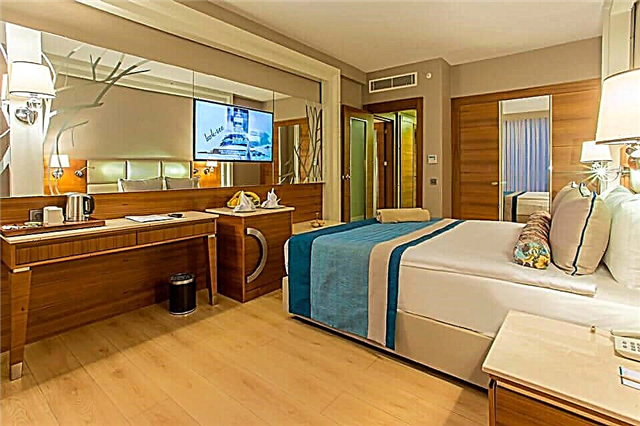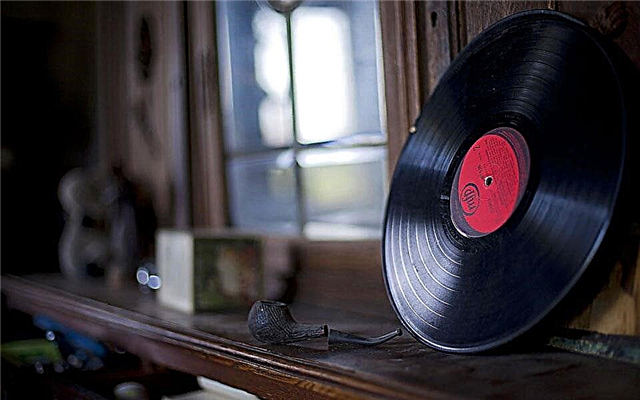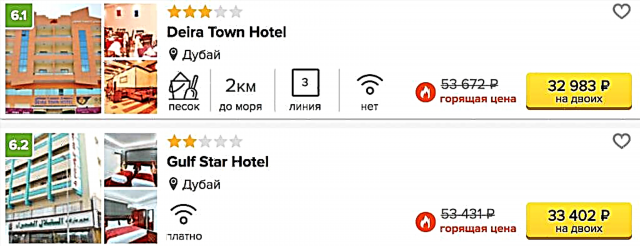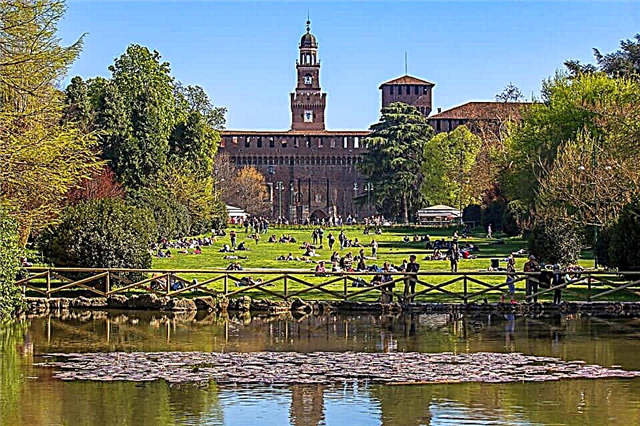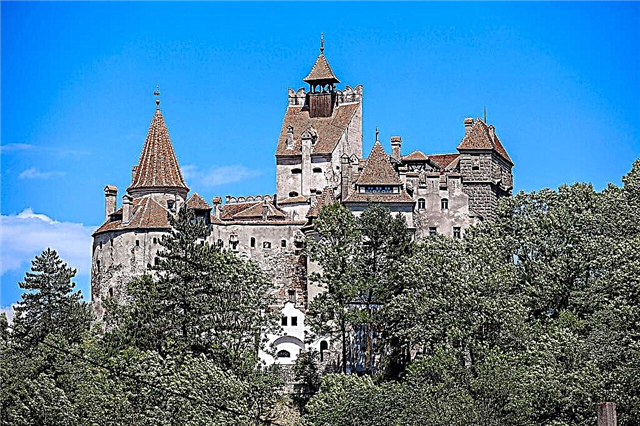Mysterious Romania attracts tourists with its history and beauty of natural places. Many of them believe that all the medieval castles of this country are inhabited by vampires. Legends about Count Dracula excite the imagination of travelers. Gothic castles in the forests, spiers into the sky, as if they are a reflection of national myths.
However, most tourists know Romania as a classic European country. There are many magnificent buildings in the capital. The rich and varied culture of the country is presented in ethnographic museums. Dense forests are most often the territory of a nature reserve or national park. The charm of the cozy atmosphere of small towns in Europe can be found in Brasov, Sibiu or Sighisoara. Each historical region of Romania is attractive in its own way and has its own flavor.

The best hotels and hotels at affordable prices.
from 500 rubles / day
What to see in Romania?
The most interesting and beautiful places, photos and a short description.
Bran Castle
It is also known as Dracula's castle, since during the campaigns the voivode Vlad Tepes-Dracula often stayed here for the night. It was he who was the prototype of the hero of Stoker's novel. Bran Castle was built in the XIV century as a defensive fortress. Subsequently, two defensive towers were added to it. Long labyrinthine corridors lead through the castle premises, and from the well there is a passage to the underground premises.

Palace of Parliament (Bucharest)
An architectural monument in the capital of Romania. The luxurious palace is one of the largest administrative buildings in Europe. Currently, it hosts meetings of the Romanian government. The height of the palace is 86 meters, but the amazing thing is that it goes 92 meters deep. The construction of the castle required about 1 million square meters of marble, 350 tons of crystal. The interior decoration of the palace has not yet been completed.

King Mihai I Park (Bucharest)
Founded in 1936. Located next to Place Charles de Gaulle in an area where in the past there were swamps. The largest part of the park is occupied by Lake Herastrau. The sights of the park are the royal residence “Elizabeth's Palace” and the Museum of the Romanian Village. A part of the park is occupied by a recreational zone intended for recreation of city residents and travelers. This part of the park has paths and benches.

Alba Carolina Fortress (Alba Iulia)
An ancient fortress, built in the years 1715-1738. It is interesting in an unusual heptagonal shape for buildings of this type. Some believe that the architects erected it in the form of a star. The fortress was built as a defensive structure during the invasion of the Turks, but she participated in only one battle - against the Hungarians. The walls of the fortress are well preserved, in one of them a hotel was built in the style of the "Middle Ages".

Sfatului Square (Brasov)
Also called City Council Square. The oldest square in the city of Brasov, a large number of medieval historical buildings and architectural monuments are concentrated on it. Including an interesting building of the 15th century town hall, which now houses a historical museum. A large number of excursion routes pass through the noisy and crowded square; fairs or mass festivals are often held there.

Historic center of Sibiu
Sibiu is a city in Transylvania, a historical region of Romania. The center of this city is a candidate for protection as a UNESCO site. It is conventionally divided into two parts. Architectural monuments are concentrated in the Upper City; wealthy strata of the population lived there. The lower town will show tourists the life of workshops and artisans. The narrow, cozy streets of the center turn into squares where, as a rule, a church is located.

Historic center of Sighisoara
The city itself was founded in the 13th century by immigrants from Saxony. They built a fortress on a hill, which later formed one of the most beautiful preserved cities in Europe since the Middle Ages. The historical center of Sighisoara is rightfully included in the UNESCO heritage list. Its symbol is the 64-meter Clock Tower. It was built simultaneously with the fortress. Costumed processions and tournaments are held on the square of the center.

Lipscani Street (Bucharest)
The street is called the heart of the old city. In the past, fairs and auctions were held there, and even now there are many different shops - souvenir, book, wine, tea shops. In the evening, bars and restaurants begin to work, and the active nightlife of this street begins. Many buildings in this part of the city were damaged during the Second World War. And now the renovated buildings house the city's most fashionable boutiques.

Botanical Garden in Cluj-Napoca
It is a botanical garden of Babes-Boyai University. The garden bears the name of the Romanian botanist of this university - Alexander Borza. Research activities are carried out in this popular tourist destination. More than 10,000 plants from all over the world grow on the 14 hectares of the garden. Some areas are decorated with themed landscapes. A pagoda was built in the "Japanese Garden", and ancient Roman artifacts were installed in the "Roman Garden".

Peles Castle (Sinaia)
The ancient castle in the Carpathian region is an architectural monument. After construction in 1914, it was a royal residence. The luxury of the interiors is amazing. Decorations include wall paintings, stained glass windows, carvings. A garden with many sculptures is laid out in the park around the palace. Currently, the castle houses the Historical Museum. In it you can see a collection of weapons and armor of the Middle Ages, works of art.

Corvin Castle (Hunedoara)
An ancient castle of the Hunyadi family, built in the 15th century on the site of a small fort with a single defensive tower. During its existence, the castle has changed more than 20 owners, each of which rebuilt and completed it to his liking. As a result, architecture is represented by different styles from Renaissance to Neo-Gothic. Now the castle houses a museum. The road to it passes through a gigantic bridge.

Rasnov fortress
Built by the knights of the Teutonic Order back in 1215. Its main purpose was to protect the local civilian population. When the threat of attack, the villagers took refuge behind the walls of the citadel, which had everything necessary for life - houses, a school, a chapel. In the middle of the fortress there is a well 146 meters deep. According to legend, it was dug by Turkish prisoners of war in an attempt to save their lives.

Black Church (Brasov)
Lutheran old temple, built in the XIV century. Located in Transylvania. The height of this Gothic building is 65 meters. The church got its name after the fire of the Great Turkish War. The fire covered the walls of the church with soot. The temple is active. But tourists are allowed to go inside and inspect the ancient artful frescoes, sculptures, as well as magnificent carpets that adorn the interior.

Stavropol Church (Bucharest)
A sacred place for many pilgrims. Believers from all over Europe come to church to see unique religious artifacts. For example, particles of the relics of the apostles Peter and Andrew. Travelers are delighted with the design of the church. In its appearance, the best traditions of Byzantine and Romanian architecture are intertwined. The peculiarity of the interior is the exquisite subtlety of the decoration of the frescoes and paintings, as well as the altar.

Horezu monastery
Located in the historical place of Romania - Wallachau. Built in 1690. The architecture of the monastery is a splendid example of the Brankovian style that originated in this area. The interior painting of the monastery church was done by the artist Konstantin who was invited from Greece.Many of his drawings have survived to this day. The monastery is protected by UNESCO as an object of world cultural and historical value.

Churches of the historical region of Moldova
Moldova is an area in the north-east of the country. 8 churches in this area are protected by UNESCO. The churches were built between 1487 and 1532. Churches differ in different styles of decoration and architecture, they are painted in different colors. Excursion tours to the churches of Moldova are popular with travelers, even those who have no relation to religion. You don't need to be an expert to appreciate the architectural and spiritual value of these churches.

Romanian Athenaeum (Bucharest)
A magnificent concert hall in the capital of Romania. Built in 1888 at the initiative of Romanian artists. The Concert Hall is the main venue for the George Enescu Orchestra of the Bucharest Philharmonic. The building was built in the neoclassical style with elements of romanticism. Its architecture includes columns and a dome with a spire, as well as rich external and internal decor. There is a park around the concert hall.

Romanian National Museum of Art (Bucharest)
Located in the center of Bucharest and occupies the building of the former royal palace. The exhibitions of the museum showcase exhibits of various subjects - weapons, coins, books, antique clothes and furniture. Particular attention is paid to art objects. The works of local masters are united in the Gallery of Contemporary Romanian Art and there is a separate exhibition of works by masters of painting and sculpture from abroad.

Palace of Culture (Iasi)
Four museums of the national complex of Moldova and the Center for the Conservation and Restoration of Cultural Heritage are united under the roof of the Palace of Culture. 298 rooms of the palace were provided for their needs. The central hall is decorated with floor mosaics depicting animals of the Bestiary. The entrance to the Palace of Culture is through the Clock Tower. The building has survived 14 fires and several major renovations.

Museum of the Romanian Village (Bucharest)
One of the oldest ethnographic museums in the world. Founded in 1936. The open-air museum is located by Lake Herastrau. On its vast territory there are more than 300 buildings brought from different parts of Romania. They are united in 76 complexes. All types of village architecture in the country are represented. The oldest museum buildings date back to the 15th century. Wooden and water mills are especially interesting to see.

ASTRA (Sibiu)
The theme of the complex is dedicated to the Romanian civilization. The open-air exposition is a large platform on which the life and culture of Romanians are presented. Among the exhibits there are such structures as farmers' houses, schools, religious buildings. Everyday life is shown graphically - many men and women, dressed in national costumes, show how household work is done. Inspection of this complex will take about 4 hours.

Merry cemetery
Located in the village of Sepyntsa. A unique feature is the attitude towards the death of local residents; they do not regard the passing away as a gloomy and tragic event. And the gravestones of the graves at the Merry Cemetery are bright and colorful, with original drawings and poems. They often depict the life of a deceased person, its most vivid episodes. The cemetery is accessible to visitors at any time; thousands of tourists come here every year.

Salt mine in Turda
Salt springs in this area have been known for a long time. The first mentions of them date back to 1075. In 1992, tourists began to enter the mine, and the facility quickly gained popularity among travelers. In addition to visiting the salt "palace" - as the cave is often called, a health center was founded there. There are gyms and treatment rooms. Excursions to the underground lake are popular, you can sail on it by boat.

Southern Carpathians
This part of the Carpathian mountain range is called the Transylvanian Alps. The highest mountain is Moldovyanu - 2544 meters. It is located in the Fagarash mountain range. The slopes of the mountains are covered with forests, and at the beginning of summer there is still snow on their tops, there are large glacial lakes. More accessible for hiking is Mount Tympa near Brasov. The tourist infrastructure is well developed on its slopes.

Scarisoara cave
A large ice cave in the Apuseni mountains. Romanians call it a natural wonder of their country. The cave was formed about 3,500 years ago, its exploration began at the beginning of the 20th century. Even now, access is not open everywhere for tourists, as scientists continue to work there. For visitors, the descents and ascents are equipped with stairs. The total length of the cave is over 700 meters. The temperature in it does not exceed 0 degrees.

Mud volcanoes in Buzau
They are located on the territory of a nature reserve. They appeared as a result of an earthquake in 1977. 4 craters spew out streams of mud almost daily, containing many chemical elements. Mud streams, drying up, form unusual landscapes with deep cracks, similar to the surface of the Moon. For tourists on the territory of the reserve there are several hotels and pitches for setting up tents.

Bucegi Sphinx and Bebele
Rock formations that are included in the list of natural wonders of Romania. They are located on the territory of the Bucegi Natural Park at an altitude of more than 2000 above sea level. The unusual shape of the rocks is due to erosion and wind. The figure of the Sphinx from a certain angle really resembles the figure of a mythological animal. Babele is translated from Romanian as "old women", but it is a little more difficult to discern the outlines of old women.

Retezat
National park, UNESCO protected area. Located in the mountains, the highest point is Mount Peleaga - 2509 meters. The landscape of the park is varied - mountain peaks and alpine meadows, rocks and pine groves. Many large predators live among the rich alpine flora - wolf, brown bear, lynx. There are 120 species of birds in the park, including golden eagles, eagle owls, and vultures. Reptiles are represented by poisonous vipers.

Natural Park "Iron Gate"
The park got its name because of the area in the Danube valley, where the Carpathian and Staro Planina mountains converge. The borders of Romania, Serbia and Montenegro run alongside this territory. The fast flow of the Danube in this area is used by a hydropower complex, dams have been built. The territory of the national park is over 60,000 hectares. More than 1000 different plant species grow here, including relict ones.

Monument to King Decebalus
The bas-relief of the king and the great commander was carved into the coastal rock. It is one of the tallest of its kind in Europe. The sculpture is 40 meters high and 25 meters wide. 12 sculptors-climbers and auxiliary workers worked on the creation of the monument. The initiator of the creation of the monument was the historian Joseph Draganu. The creation of the monument took 10 years and cost about a million dollars.

Sarmisegetuza
This place was the seat of the kings of Dacia, an ancient state. It also combined the functions of a military and religious center and was one of the defensive fortresses of King Decebalus. The entire fortress complex is a UNESCO heritage site. The fortress is located in the mountains of Transylvania at an altitude of 1200 meters. The sanctuaries are an important part of Sarmizegetuz. But during the raids of the Romans, almost all the temples were destroyed.

Transfagarasi highway
Alpine road, built between Wallachia and Transylvania in 1974. About 6,000 tons of dynamite was spent to pave the road in the rocks. It is currently considered one of the most beautiful roads in the world. It leads through beech groves and a waterfall with mountains in the background. Next to the highway is the "residence of Vlad Dracula" - the Poenari fortress. The road is open to travelers only a few warm months of the year.

Bikaz gorge
Located in the Eastern Carpathians. A mountain river with trout runs between the high cliffs of the gorge.In Romania, the Bicaz gorge is the longest and deepest. Part of the road along it is a serpentine. On one side there are steep cliffs, on the other - a sheer cliff. Near the gorge, you can see Lake Krasnoe, formed as a result of the blocking of the river bed after a collapse.

Danube Delta
It is the second largest in Europe. Most of it is located on the territory of Romania, and it is she who is recognized by UNESCO as a natural heritage site and is taken under protection. This area is a nature reserve. The landscape of the delta is varied - there are sand dunes, thickets of reeds and willows, and swamps. Many small rivers and streams flow through the wetlands of the reserve. There are many animals in the Red Book.

Mamaia beach (Constanta)
Mamaia resort is considered the most expensive and famous resort in Romania. Luxurious hotels and health centers have been built near the beachfront area. The beach is 8 km long and 200 meters wide. The sand is soft and velvety, golden in color. The beach infrastructure is well developed. There are jet skis and water skis for rent, mini-football and volleyball courts are equipped. Thanks to the breeze, there is no sweltering heat on Mamaia Beach.


